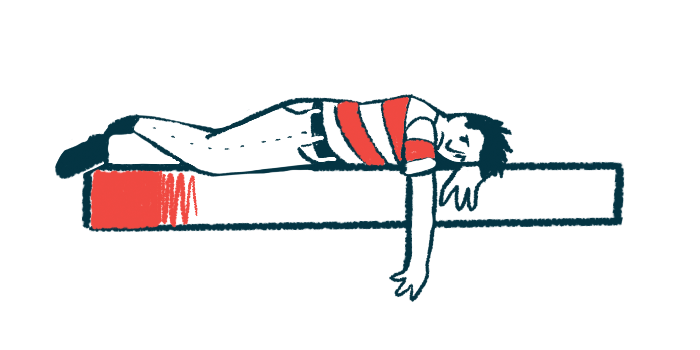Fatigue not eased with DMTs in people with MS: Study
Reducing inflammation expected to lower fatigue; conflicting results seen
Written by |

Using disease-modifying therapies (DMTs) doesn’t reduce fatigue levels in people with multiple sclerosis (MS), a study in Norway suggests.
Anxiety and depression were both associated with fatigue, suggesting “there are other underlying causes of fatigue than focal inflammation, on which DMTs have an effect,” the study’s researchers wrote in “No association between disease modifying treatment and fatigue in multiple sclerosis,” which was published in Multiple Sclerosis and Related Disorders.
Fatigue, a feeling of persistent mental or physical exhaustion that limits a person’s ability to go about daily life, is one of the most common symptoms of MS, impacting about 60-90% of patients.
The exact mechanisms that lead to fatigue in MS remain elusive, but inflammation is believed to be one factor. If that were so, currently approved DMTs, which work to reduce MS-driving inflammation, would ease it, but few studies have examined this link and those that did found conflicting results.
Do DMTS address fatigue in MS?
A team of researchers in Norway examined data from more than 1,100 people with MS from the BOT-MS registry, which is following people at three counties in the southeast part of the country, to know more about the impact of DMTs on fatigue.
Most patients (80%) had fatigue, as assessed by a score of 43 or more on the Fatigue Scale for Motor and Cognitive functions (FSMC), a self-reported questionnaire. More than half had severe fatigue, with scores between 63 and 100.
Cognitive fatigue was seen in 76% of the patients and motor fatigue in 80%. More than half (59%) had both anxiety and depression, as assessed with the Hospital Anxiety and Depression Scale (HADS).
About a quarter (26%) had never received a DMT and 18% had discontinued treatment. Only 56% were receiving a DMT — 26% a moderate-efficacy DMT and 30% a high-efficacy one.
Moderate therapies included interferon-based medications, glatiramer acetate (sold as Copaxone, among others), teriflunomide (sold as Aubagio and generics), and dimethyl fumarate (sold as Tecfidera and generics). High-efficacy therapies included Tysabri (natalizumab), fingolimod (sold as Gilenya and others), rituximab, Lemtrada (alemtuzumab), Ocrevus (ocrelizumab), and Zinbryta (daclizumab).
Autologous hematopoietic stem cell transplant (aHSCT), called stem cell therapy, an invasive procedure that’s intended to reset the immune system and stop the inflammatory attack that drives MS, was included as a high-efficacy therapy.
Factors such as sex, older age, increased disability, anxiety, and depression were all linked with worse fatigue, while the use of moderate-efficacy drugs lowered fatigue, initial statistical analyses showed. A multivariate analysis, which takes account of several different variables, showed only sex, the level of disability, anxiety, and depression as independent factors associated with fatigue, however.
No associations were detected between fatigue and new or enlarging lesions on MRI scans or clinical relapse in statistical analyses.
“In this large, cross-sectional study, we found no associations between treatment with high-efficacy or moderate-efficacy DMTs and MS-related fatigue,” the researchers said.



